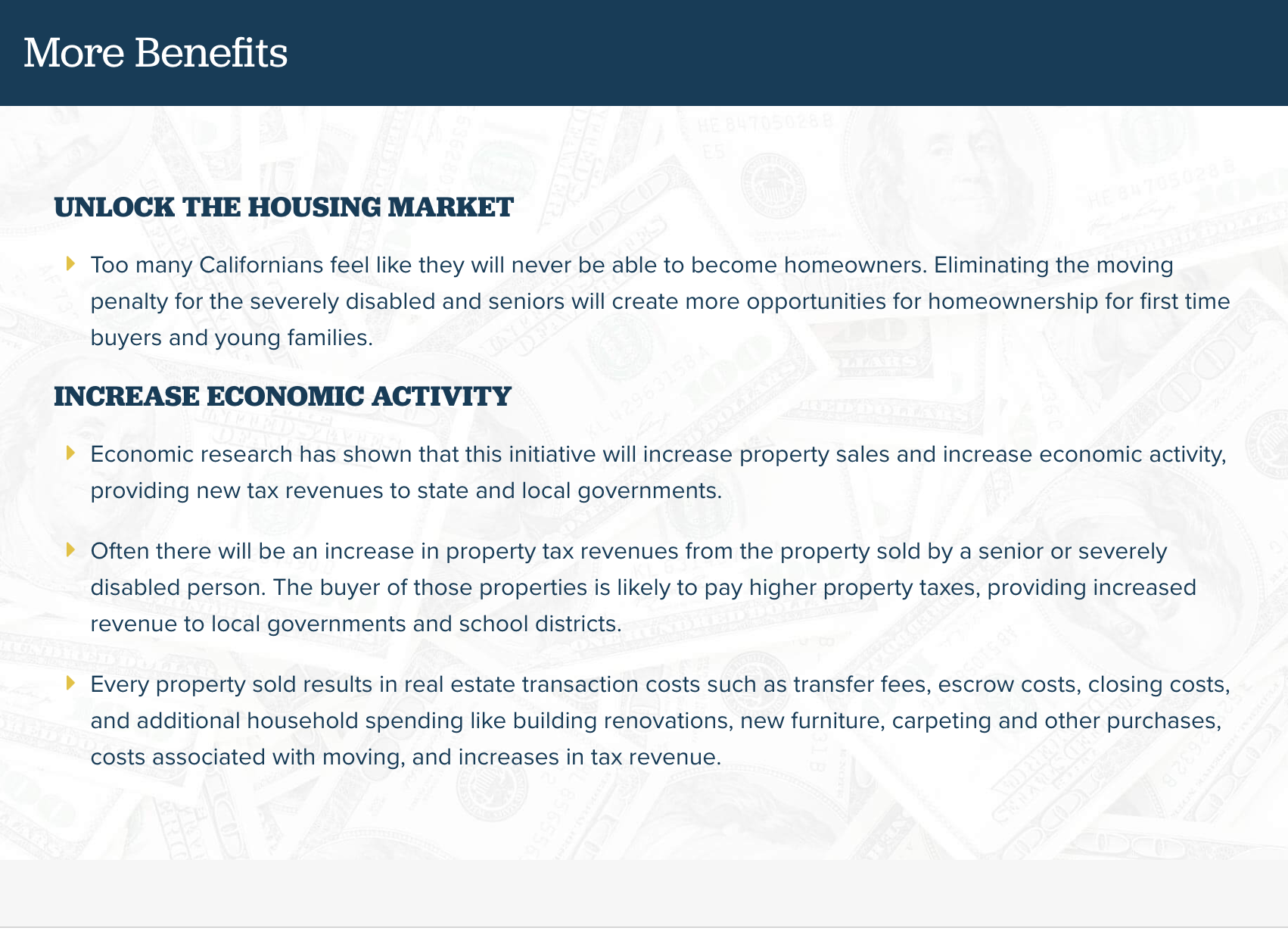A VOTE YES on Prop 5 can mean big property tax savings for you to move to another property in CA
Seniors in California who want to downsize from their three- or four-bedroom home, now that their children are gone, find themselves facing a costly and daunting dilemma. If they sell, they would lose the property tax protections they’ve enjoyed under Proposition 13.
Instead of paying what experts are calling a steep “moving penalty” in the form of a sharp property tax increase, these people stay in a home that could otherwise be sold to a young family. This is part of the reason why California is facing a crushing affordable housing shortage: fewer single family homes are reaching the sales market.
California Has an Unfair Moving Penalty
Under current California law, property taxes are set at 1% of the assessed value of the property when purchased. This becomes known as the property’s “tax base.” In addition, the assessed value can only increase annually by 2%. Often, when a homeowner sells their home, they lose this tax base. For seniors and the severely disabled, particularly those that have owned their homes for a long period of time, a move to a new home can mean a massive increase in their property tax base in what amounts to a “moving penalty.” The Property Tax Fairness Initiative protects these vulnerable Californians who are often on fixed incomes and can’t afford large property tax increases by allowing them to maintain a lower, fairer tax base when they need to move.
Proposition 5 fixes this by allowing seniors the flexibility to move anywhere in the state, limiting the tax penalties they might face while also ensuring they pay their fair share of property taxes. For example, let’s say a senior sells a house assessed at $300,000 for $700,000. That senior then buys a new home for $800,000. The new assessment would then be $400,000, reached by adding the difference between the sale and purchase price to the original assessed value.
This measure enjoys significant support from taxpayer and from veterans’ groups, including the American Legion-Department of California, the California Association of County Veterans Service Officers and the National Guard Association of California.
This turnover of homes would be a welcome boost at a time when California is experiencing a severe shortage of housing. It would revitalize existing neighborhoods by bringing in young families with children and enhance enrollment in neighborhood schools.
In addition to unlocking the housing market, these sales would also mean an increase in property tax revenues from the home that is sold.
New buyers would pay higher taxes on that newly-assessed home, providing an increase in revenues to local governments and school districts. There would be other increases in economic activity, associated with payment of transfer and escrow fees and spending on housing renovations and furniture.




